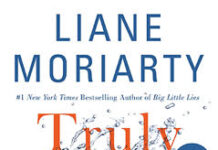In the vast tapestry of historical fiction, few tales manage to blend humor, heart, and historical insight as effortlessly as Catherine, Called Birdy by Karen Cushman. set against the backdrop of medieval England, this coming-of-age story invites readers to glimpse the challenges and quirks of life in the Middle Ages through the eyes of a spirited young girl. in this review, we will explore how Cushman’s vivid narrative and rich characterizations work together to transport us to a world both distant and surprisingly relatable-offering a fresh perspective on a time often shrouded in legend and misconception.
The Enchanting Medieval World Brought to Life Through Vivid Descriptions and Immersive Settings

Immerse yourself in the bustling, often chaotic life of 13th-century England as Catherine, Called Birdy paints a vivid tableau that dances off the page. From the mud-slicked village lanes to the echoing halls of medieval castles,the narrative masterfully conjures an era brimming with both grit and charm. Descriptions of the market stalls laden with goods, the clatter of wood and metal on leather armor, and the scent of hearth smoke create a multisensory experience that transports readers directly into Birdy’s world. The richly detailed setting is more than mere backdrop; it acts as a living, breathing character that shapes the whims, trials, and rebellious spirit of its young heroine.
The book’s immersive atmosphere extends to everyday medieval customs and social dynamics, providing depth without overwhelming. Readers can explore:
Best-Selling Books in This Category
- Feasts and festivals: Lively, detailed scenes that reveal community bonds and social hierarchies.
- Family politics: The tensions and alliances spun through arranged marriages and property disputes.
- Daily chores and trades: Authentic glimpses of medieval labour, from baking bread to managing livestock.
| Element | Effect on Story |
|---|---|
| Castle Setting | Heightens tension and birdy’s feelings of confinement |
| Village Life | Highlights communal ties and traditions |
| Historical Details | Enhances believability and reader immersion |
Exploring the Quirky and Relatable Voice of Catherine as a strong-Willed Young Protagonist
catherine’s voice resonates with a unique blend of wit, candor, and youthful rebellion, making her not just a character, but a companion through the trials of medieval life. Her diary entries burst with sharp observations that are both humorous and heartfelt, capturing the restless spirit of a girl determined to carve out her own identity in a world governed by rigid social norms. The authenticity of her voice allows readers to connect deeply, as her struggles with arranged marriage, family expectations, and self-finding feel timeless and universal.
What sets Catherine apart is her refusal to be silenced or subdued by the era’s constraints.Her perspective invites readers to see medieval England through the eyes of a spirited young female protagonist who challenges authority and questions tradition. Here’s a glimpse of what makes her voice so compelling:
- Relatable honesty: Catherine’s candid expression of frustration and hope mirrors the complex emotions of adolescence.
- Quirky humor: A playful tone that softens serious moments while highlighting her sharp intellect.
- Resilient spirit: An unwavering determination to assert her own will, even amidst societal pressures.
| Characteristic | Effect on Reader |
|---|---|
| Bold self-expression | Engages empathy and admiration |
| Humorous observations | Provides levity and accessibility |
| Insightful reflections | Encourages deeper contemplation |
A Delightful Blend of Humor and Historical Accuracy That Engages Both Young and Adult Readers
Catherine, Called Birdy masterfully intertwines laugh-out-loud humor with surprisingly accurate depictions of 13th-century English life, making it a unique treasure for readers of all ages.The witty diary entries of Catherine serve as a portal to the medieval era, capturing both the daily struggles and the absurdities of her world. From her clever defiance against unwanted suitors to her candid observations of family dynamics, readers are treated to a fresh perspective on history that feels refreshingly alive rather than textbook dull. The humor is never forced; rather, it breathes life into historical details, weather about food, fashion, or social customs, thus sparking curiosity without sacrificing entertainment.
The book’s ability to balance education and amusement is further highlighted by its approachable language, which invites younger readers while still resonating with adults. The following table illustrates some of the delightful contrasts Catherine navigates, emphasizing how the novel cleverly appeals across generations:
| Aspect | Younger Readers | Adult Readers |
|---|---|---|
| Humor Style | Playful sarcasm and clever one-liners | Subtle social critiques and irony |
| Historical Details | Vivid descriptions of medieval daily life | Insight into feudal norms and gender roles |
| Character Appeal | relatable rebellious heroine | Complex family and societal dynamics |
- Engaging narrative voice that evokes empathy and laughter alike
- Historically rooted scenarios that educate without overwhelming
- humor that transcends ages, encouraging shared reading experiences
The Role of Family dynamics and Social Expectations in Shaping catherine’s Bold Journey
Catherine’s journey unfolds within the strict walls of medieval societal norms,where family hierarchy and rigid expectations seek to tether her adventurous spirit. Her father, embodying the patriarchal figurehead, exerts control with a firm grip, emphasizing alliances and wealth over personal happiness. Simultaneously occurring, Catherine’s mother navigates the delicate dance of social propriety, pushing her daughter toward the traditional roles of obedience and marriage. This familial pressure acts as both a cage and a catalyst-while attempting to confine her, it inadvertently fuels her determination to carve out an identity beyond the constraints laid out before her.
- Expectation: Marry well to secure family status
- Reality: Desire for freedom and self-expression
- Challenge: Reconciling personal dreams with societal duty
Social expectations in catherine’s world are more than background noise; they are the invisible forceps molding behavior and thought. The community’s watchful eyes on every action reinforce notions of honor, reputation, and proper conduct. This collective surveillance sharpens Catherine’s wit as she learns to mask rebellion with compliance, crafting a delicate balance between societal acceptance and self-assertion. Her story becomes a vivid tapestry of defiance stitched into the fabric of convention, illustrating how familial roles and cultural norms shape not only her external reality but her internal evolution as well.
How Everyday Medieval Life and Gender Roles Are Portrayed with Nuanced Detail and Insight

Catherine, Called Birdy immerses readers in the rich tapestry of 13th-century English life with a vitality that feels both authentic and refreshingly original. The narrative deftly captures the rhythms of daily existence-from the bustling market stalls and the gritty labor of farm life to the quiet moments within castle walls-painting a vivid picture of a time when survival hinged on resilience and resourcefulness. There’s an undeniable texture to the portrayal of medieval living: coarse linens, the clatter of wooden shoes on stone floors, the omnipresent scent of hearth smoke. These details invite readers not only to observe but to inhabit the era, shedding clichéd, often romanticized images of the Middle Ages in favor of intricate, grounded realism.
What sets the book apart, however, is its profound and layered exploration of gender roles. Catherine’s lively voice challenges the rigid expectations placed upon women, offering subtle yet compelling commentary on power, autonomy, and identity. Rather than presenting gender as a static construct, the story reveals its ebb and flow through everyday acts-rebellion against betrothal, witty verbal sparring, and moments of genuine vulnerability. The subtle defiance embedded in Catherine’s diary entries highlights the social choreography of gender with sharp insight,reminding us how roles were negotiated,enforced,or quietly subverted. This dynamic is beautifully summarized below:
| Aspect | Male Role Expectations | Female Role Expectations | Catherine’s Reactions |
|---|---|---|---|
| Marriage | Economic alliance, social duty | Submission, obedience | Resists arranged matches, mocks traditions |
| Education | Preparation for governance or trade | Household skills, limited literacy | Yearns for knowledge beyond expectations |
| Daily Work | Manual labor, protection | Household chores, nurturing roles | Questions rigid division, seeks freedom |
Themes of Independence and Self-Discovery That Resonate Across Time and Cultures
At its core, Catherine, Called Birdy captures the exhilarating struggle between societal expectations and personal freedom-a theme as timeless as the human spirit itself.Catherine’s journey is not just confined to the dusty roads and castle walls of medieval England; it echoes the universal quest for identity and autonomy that spans continents and centuries. From her defiant diary entries to her inventive acts of rebellion, Catherine embodies the fierce desire to carve out her own path, a narrative that resonates just as deeply in modern coming-of-age stories as it did in medieval chronicles.
Throughout the novel, readers encounter universal motifs that transcend cultural boundaries, such as:
- Challenging traditional gender roles
- Questioning inherited norms and family expectations
- The tension between youthful idealism and societal conformity
Each of these elements shines a light on the shared human experience of self-discovery. The complexity of Catherine’s character serves as a vibrant mirror, reflecting not only the medieval backdrop but the timeless dance between independence and belonging that continues to shape lives today.
The Impact of Catherine’s diary Format in Creating an Intimate Connection with Readers
The structure itself mimics the natural flow of adolescent musings,filled with spontaneity,repetition,and candidness,which enhances the connection between Catherine and the audience. Readers come to cherish the evolving voice of the protagonist, witnessing her growth with the passing pages. To illustrate, here’s a speedy comparison of how the diary format nurtures intimacy versus a traditional third-person account:
| Diary Format | Traditional Narrative |
|---|---|
| First-person, confessional tone | Third-person, objective description |
| Raw, unfiltered emotions | Polished, summarized perspectives |
| Spontaneous, intimate thoughts | Structured, external observations |
| Sense of shared secrets with reader | Viewer-like distance |
This unique approach lets the audience laugh, cringe, and dream alongside Catherine, reinforcing the timelessness of her journey and making Catherine, Called birdy an enduring bridge between past and present.
Subtle Commentary on Medieval Politics and Society Interwoven with Lighthearted Storytelling
Amid the whimsical adventures and witty banter,Catherine,Called Birdy deftly embeds a quiet but sharp critique of medieval norms.The narrative paints the restrictive roles imposed on women with a delicate balance-never preachy, always playful. Through Birdy’s rebellious spirit and clever observations, the story exposes the absurdities of inheritance laws, marital expectations, and rigid class structures. Her antics offer not only laughter but subtle reflections on how society’s rules often constrict personal freedom, especially for young women coming of age in a patriarchal kingdom.
What makes this commentary particularly engaging is its seamless blend with lighthearted storytelling. the novel employs:
- Humorous misadventures: Birdy’s escapades provide an entertaining lens to critique social customs.
- Relatable characters: From scheming suitors to exasperated parents, all embody the complexities of medieval life.
- Humanizing daily life: Scenes of feasts, market days, and family dinners ground the political undertones in everyday experience.
| element | Medieval Reality | Lighthearted Twist |
|---|---|---|
| Marriage | Strategic alliances to secure land | Birdy’s humorous resistance and outrageous schemes |
| Gender Roles | Women confined to household duties | Birdy’s imaginative rebellions and outspoken diary entries |
| Social Hierarchy | strict class divisions | Playful depictions of mix-ups and misunderstandings |
Illustrations and visual Elements Enhancing the Authenticity and appeal of the Narrative
The book’s vivid illustrations act as a portal, whisking readers directly into the heart of medieval England. each drawing, from the detailed costumes to the vibrant marketplace scenes, complements Birdy’s spirited voice and sharp wit, making the historical setting feel both tangible and immediate. These visual elements don’t just accompany the text-they create an immersive backdrop that deepens the emotional connection to the story, inviting readers to linger on every moment as if flipping through a beautifully illuminated manuscript.
Moreover, the strategic placement of sketches and diagrams enhances the narrative’s authenticity by offering insights into everyday medieval life. Readers encounter charming depictions of Birdy’s eccentric family,the rustic village,and various artifacts,which demystify the era’s customs without slowing the pacing. This visual storytelling is further enriched by:
- Annotations and marginalia-style notes that echo medieval manuscripts, lending a playful yet scholarly touch.
- Maps and layouts that help orient readers geographically and socially within the story’s world.
- Character sketches that capture the distinct personalities of Birdy’s companions and adversaries.
| Visual Element | Purpose | Impact |
|---|---|---|
| Illuminated Letters | Introduce chapters with medieval flair | Enhances historic feel, grabs attention |
| Daily Life Sketches | Depict common objects and scenes | Creates relatable context |
| Marginal Notes | add humor and insights | Engages reader interaction |
Why This Novel is an Essential Recommendation for Educators Seeking to Teach History Creatively
Catherine, Called Birdy offers a refreshing gateway for educators eager to break the mold of traditional history lessons. By immersing students in the vibrant, often humorous perspective of a young medieval girl, the novel transforms dusty dates and dry facts into a lively narrative that resonates on a personal level. It encourages learners to explore the complexities of medieval society – from gender roles to social structures – without feeling overwhelmed by conventional academic jargon. This approach not only ignites curiosity but also fosters empathy,allowing students to connect emotionally with the past.
Using this novel in the classroom invites a variety of creative teaching methods that engage diverse learning styles. Here are some standout benefits educators will appreciate:
- Storytelling as a teaching tool: Enhances retention through narrative immersion.
- Multifaceted character exploration: Sparks critical thinking about societal norms and personal agency.
- Cross-curricular potential: Bridges history with literature, drama, and art projects.
- Encourages discussion: Invites students to debate and analyze historical contexts.
| Feature | Educational Impact | creative Application |
|---|---|---|
| First-person narrative | personalizes historical experience | Writing journal entries as Birdy |
| Medieval cultural details | Contextual understanding | Role-play medieval roles |
| Humor and wit | Maintains engagement | Creative dramatizations |
The Enduring Appeal of Catherine Called Birdy in Modern Young Adult Literature and Beyond
Catherine, Called Birdy remains a luminous beacon in young adult literature, captivating readers with its inventive narrative voice and richly sketched medieval world. Birdy’s rebellious spirit and witty observations transcend time, inviting modern audiences to explore themes of identity, freedom, and societal expectations through the lens of a 13th-century girl. The novel’s diary format creates an intimate connection, allowing readers to experience her joys and frustrations firsthand, which continues to resonate deeply in contemporary storytelling. This timeless charm illuminates why Birdy’s tale is not merely a historical account but a lasting inspiration for young adults navigating their own complex journeys.
In classrooms and beyond, Catherine, Called Birdy sparks meaningful conversations about gender roles and cultural norms, highlighting how far we’ve come-and how some struggles remain universal.The book’s layered humor and candid portrayal of adolescence make it a versatile tool for educators and readers alike. Below is a quick look at what makes Birdy’s story endure in today’s literary landscape:
- Relatable protagonist: Birdy’s fierce independence mirrors the quest for self-discovery in all young readers.
- Historical immersion: Vivid depiction of medieval life invites immersive learning and thankfulness.
- Timeless themes: Identity, resistance, and societal pressure translate across centuries.
- Engaging format: Diary entries create an authentic, personal narrative experience.
A Thoughtful Exploration of Katherine Paterson’s Storytelling Craft and Literary Contributions
Katherine paterson’s narrative genius shines brilliantly through Catherine, Called Birdy, where her delicate weaving of historical accuracy and youthful voice exemplifies her mastery in storytelling. The novel illustrates her unique ability to capture the essence of an era while maintaining a relatable, vibrant narrative that resonates with modern readers. Through Birdy’s spirited diary entries, Paterson explores themes of autonomy, societal expectations, and childhood rebellion with a deft hand, allowing readers to immerse themselves fully in a 13th-century world that feels surprisingly immediate and personal. This balance of authenticity and accessibility is one of Paterson’s signature contributions to children’s literature, inviting readers to engage not just with history, but with the universal challenges of growing up.
Beyond just storytelling, Paterson’s work in Catherine, Called Birdy serves as a catalyst for discussions on gender roles and cultural norms that continue to be relevant today. Her skill in portraying complex characters lends depth to the narrative, encouraging empathy and understanding across generations. The novel’s impact can be highlighted through a comparison of key elements that Paterson often employs:
| Storytelling Element | Example in Catherine,called Birdy | Literary contribution |
|---|---|---|
| First-person narrative | Birdy’s diary entries | Authentic,intimate voice |
| Historical detail | Medieval daily life | Immersive world-building |
| Character complexity | Birdy’s rebellious spirit | Nuanced portrayal of youth |
| Thematic resonance | Gender expectations | Timeless social commentary |
As the final pages of Catherine,Called Birdy flutter closed,we’re left with more than just a glimpse into medieval life; we carry away the spirit of a young girl who dared to defy the conventions of her time. Soaring Through Medieval Times has taken us on a journey that balances history and heart, inviting readers to laugh, reflect, and remember that even in the constraints of the past, the yearning for freedom and identity soars timelessly. Whether you’re a history buff or simply in search of a spirited coming-of-age tale, Birdy’s story remains a steady companion, whispering from the margins of medieval manuscripts to the pages of today’s creativity.















